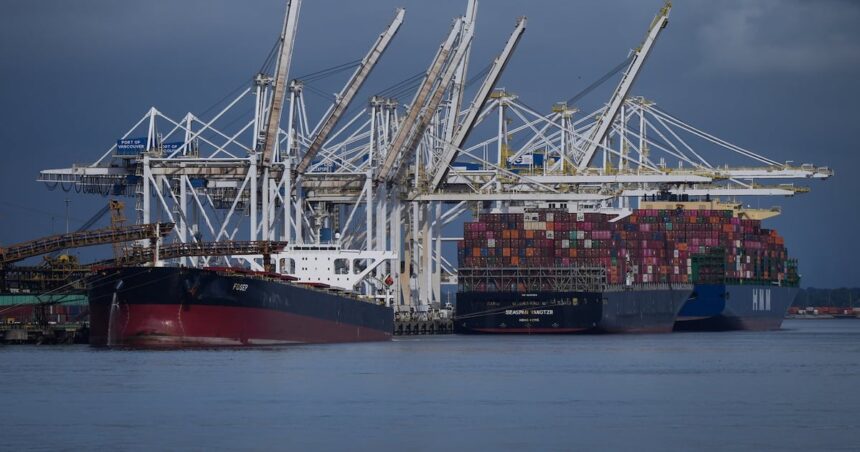In a cramped Ottawa office building just blocks from Parliament Hill, investigators at Canada’s trade sanctions enforcement agencies are drowning in casework while operating with technology that one insider described as “practically obsolete.” This stark reality has prompted an unprecedented coalition of legal experts to sound the alarm on what they characterize as a critical funding shortfall threatening Canada’s ability to enforce international trade sanctions effectively.
“We’re essentially asking highly skilled professionals to monitor sophisticated global financial networks with tools that wouldn’t impress a mid-level accounting firm,” remarked Elizabeth Thorpe, a partner at Blake, Cassels & Graydon who specializes in international trade law. “The disparity between Canada’s ambitious sanctions policies and the resources allocated to enforce them has reached a breaking point.”
The Canadian government has expanded its sanctions regime significantly over the past three years, adding restrictions against Russia, Iran, and several non-state actors. However, according to a comprehensive report released yesterday by the Canadian Bar Association’s International Law Section, funding for the agencies tasked with enforcement has increased by just 5.8% during the same period—barely keeping pace with inflation.
Global Affairs Canada and the Financial Transactions and Reports Analysis Centre (FINTRAC), the primary agencies responsible for sanctions enforcement, currently share an annual budget of approximately $87 million for sanctions-related operations. By comparison, the United Kingdom allocates nearly triple that amount on a per capita basis, while the United States spends approximately fifteen times more when adjusted for economic size.
“We’re seeing a troubling pattern where Canadian businesses are increasingly seeking guidance on sanctions compliance, but the agencies meant to provide that guidance are severely understaffed,” said Robert Khouzam, former senior counsel at CO24 Business. “This creates unnecessary uncertainty in the marketplace and potentially exposes Canadian firms to inadvertent violations.”
The funding shortage manifests in practical ways that compromise effectiveness. Sources within FINTRAC confirmed to CO24 that the agency currently employs just 14 specialists dedicated to sanctions enforcement—a team tasked with monitoring billions in potentially suspicious transactions across Canada’s entire financial system.
“When you consider that these professionals are simultaneously expected to conduct investigations, provide compliance guidance, and liaise with international partners, the mathematics simply doesn’t work,” noted Margaret Chen, Director of International Trade Policy at the C.D. Howe Institute. “There’s growing concern that sophisticated sanctions evasion schemes are slipping through the cracks.”
The legal community’s concerns extend beyond simple resource allocation. The report highlights how outdated technological infrastructure compounds the problem, with enforcement agencies reportedly relying on database systems that lack the advanced analytics capabilities standard in the private sector.
“Modern sanctions evasion techniques involve complex networks of shell companies, cryptocurrency transactions, and multiple jurisdictions,” explained David Rosenbloom, a sanctions compliance expert with McCarthy Tétrault. “Detecting these schemes requires sophisticated pattern recognition and data integration capabilities that our agencies currently lack.”
The Department of Finance has acknowledged these concerns in principle, with a spokesperson telling CO24 News that “the government recognizes the important role of proper resourcing in sanctions enforcement” and that “funding requirements are continuously evaluated.” However, no specific commitments for budget increases have been announced.
Opposition critics in Parliament have seized on the issue. Conservative trade critic Michael Cooper characterized the situation as “another example of the government’s failure to back its international commitments with meaningful action,” during yesterday’s question period in the House of Commons.
For Canada’s business community, the implications extend beyond regulatory concerns. The Canadian Chamber of Commerce recently highlighted how uncertainties in sanctions enforcement create competitive disadvantages for Canadian firms engaged in international trade.
“When businesses can’t get clear, timely guidance on sanctions compliance, many will simply avoid certain markets altogether out of an abundance of caution,” said Katherine Baird, the Chamber’s Vice President of International Affairs. “Meanwhile, competitors from countries with better-resourced agencies can navigate these waters with greater confidence.”
Legal experts emphasize that effective sanctions enforcement serves multiple Canadian interests, from national security to maintaining credibility in global politics.
“Sanctions are increasingly Canada’s tool of choice in responding to everything from human rights abuses to territorial aggression,” said Janice Williams, Director of the Centre for International Policy Studies at the University of Ottawa. “But announcing sanctions without adequate enforcement mechanisms undermines their deterrent effect and Canada’s reputation as a serious player in world affairs.”
As international tensions continue to rise in multiple regions, the question remains: will Canada finally invest the resources necessary to give its sanctions regime the teeth it needs, or will we continue expecting our enforcement agencies to accomplish increasingly complex missions with insufficient tools?























